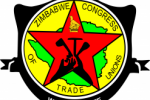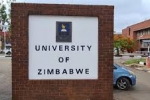The annual blended inflation rate has declined from 175.8% in June to 21.6% as at November while the monthly inflation rate has declined from 74.5% in June to 4.5% in November. There has however been a rise in both the monthly and annual inflation rates between October 2023 and November 2023 from 2.5% to 4.5% and from 17.8% to 21.6% respectively. Zimbabwe has the second highest annual inflation rate in the SADC region after Malawi whose October 2023 inflation rate is 26.9%, the October 2023 inflation rate was 12.6% in Zambia, 5.9% in South Africa, 6.03 in Namibia, and 3.1% in Botswana. In the developed economies, inflationary pressures have been receding with the US October 2023 inflation rate at 3.2% from a high of 7.7% in October 2022; in the UK, annual inflation rate was 5.6% in October 2023 down from an all-time high of 11.1% in October 2022; while in the EU, annual inflation was 2.9% in October 2023 down from an all-time high of 11.5% in October 2022. The Poverty Datum Line (PDL) per person rose from ZW$28,516.73 in November 2022 to ZW$115,090.00 in November 2023, representing a 303.6% annual increase; while it rose from ZW$105,072.00 in October 2023 to ZW$115,090.00 in November representing a 9.5% monthly increase.The erosion of purchasing power has exacerbated an already difficult situation for the poor and vulnerable.
Zimbabwe is in debt distress with total Public Debt estimated at US$17.7 billion as at the end of September 2023 up by 63.6% from the US$10.7 billion as at end of December 2020.Of the total public debt stock, external debt amounted to US$12.7 billion (71.8%) and domestic debt US$5 billion (28.2%).The high public debt stock represents an impediment to sustainable economic growth and employment creation in the economy. The rising debt burden limits the Government’s ability to undertake productivity-enhancing and welfare-improving investments in infrastructure, social protection, education, and public health. High public indebtedness also crowds-out private investment and harm economic growth through higher long-term interest rates, higher inflation, and future distortionary taxation. Public debt service also consumes a significant part of fiscal revenues also crowding away resources from critical productive sectors of the economy.For instance, interest payments are set at Z$948 billion (1.6%).
Zimbabwe continues to face huge labour market challenges related to poor job quality and high levels of working poverty. This situation is directly related to the high prevalence of informal and vulnerable employment. The country faces a scarcity of regular wage employment for all who would like wage jobs and have the relevant skills. Would-be wage employees cannot afford to remain unemployed and continue to search, so they find it better to create their employment opportunities in the informal economy. According to the 2023 Third Quarter Quarterly Labour Force Survey Report by the Zimbabwe National Statistics Agency (ZIMSTAT), informal employment constitutes 86.7% of total employment up from up from 75.6% in 2019. Informal employment is characterised by low productivity, low incomes, high poverty, no social protection, and lack of workers’ representation among others. High levels of informality implies that the country has abundant resources that are not being fully and productively utilised.Women are less likely to participate in the labor market at all ages. Even when women have a job, they are more likely to work informally in family farms or household businesses.
Public expenditures in 2024 are projected at Z$58.2 trillion (19.8% of GDP) up from the initial ZW$4.2 trillion in 2023, representing a 1,285.7% nominal increase from the initial Z$4.2 trillion in 2023 which is also way above the annual inflation rate of 21.6% as at November 2023. Total bids amounted to Z$110 trillion, implying a huge financing gap. Total revenue collections in 2024 are estimated at Z$53.9 trillion (18.3% of GDP), broken down as Z$51.2 trillion tax revenue and Z$2.7 trillion non tax revenue. The total budget financing gap in 2024 amounts to Z$9.2 trillion, comprising of budget deficit of Z$4.3 trillion (1.5% of GDP) and amortisation of loans and maturing Government securities estimated at Z$4.9 trillion. This will be funded through domestic and external borrowings. This is however of concern given the fact that the public debt has been rising unsustainably and also the fact that the country is in debt distress.
Vote allocations still remain below regional and global benchmarks. For instance, education got the highest vote at Z$10.3 trillion constituting 17.7% of the total vote allocations, this is still below the Dakar Declaration target of 20%. Health got Z$6.3 trillion (10.8%), a decline from the 11.2% allocated in 2023, below the Abuja Declaration target of 15%. Agriculture got Z$4.3 trillion, which is 7.4% of the total votes and is below the Maputo Declaration target of 10%. The Public Service, Labour and Social Welfare which is responsible for social protection got ZW$2.4 trillion, which is 4.1% of the total votes and 1.5% of GDP. According to the Social Policy for Africa Agreement (2008), African governments must spend at least 4.5% of GDP on social protection. The country is also in the midst of a cholera outbreak and addressing this requires significant public investments in Water, Sanitation and Hygiene (WASH). Government has allocated ZW$ 608.3 billion towards WASH which represents just 0.4% of GDP, which is way below the 1.5% of GDP benchmark set under the eThekwini Declaration (2008). The Global Task Force on Cholera Control considers WASH investments as the foundation to achieving the goal of reducing cholera deaths by 90% by 2030.
Resources have been set aside to meet employment, operations and capital costs of the Tripartite Negotiating Forum (TNF) secretariat. This is an important step towards the full implementation and operationalisation of the TNF Act of 2019. Social dialogue has an important role to play in the designing of policies to promote social justice and support other measures by governments to protect jobs, incomes and companies especially during times of crisis.
The tax regime in the country is already onerous and burdensome, and so the new taxes and upward reviewsin existing taxes will result in a drastic increase in the cost of accessing public services, transport and logistics, the price of fuel, and the overall cost of doing business in the country. The net effect will be to reduce disposable incomes while eroding the country’s overall competitiveness. This could also weaken the employment creation capacity of businesses. High taxation is also associated with high informality and low confidence. The wealth tax on properties will increase the cost of purchasing and renting residential properties. Government should consider exempting those with only one property from the wealth tax. While the Budget was touted as a pro-poor budget, the above tax measures risk making the budget anti-poor.
Prosper Chitambara is a Development Economist who is based in Harare.








Leave a comment